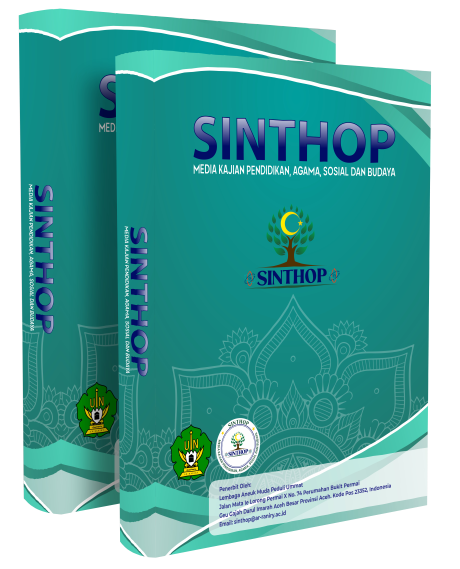Ulu al-Albab in the Qur'an: Meaning, Characteristics, and Role in Social Change
Abstract
This study aims to examine the Qur'anic verses that mention "ulū al-albāb." Using a qualitative research design and content analysis, the primary data were sourced from the Qur'an, while secondary data were collected from tafsir texts and scholarly articles. The findings reveal that "ulū al-albāb" possess profound intellectual and spiritual insight, characterized by knowledge, adherence to divine covenants, maintaining family ties, fear of God, patience, prayer, altruism, and repelling evil with good. These attributes distinguish them from ordinary intelligent individuals. "Ulū al-albāb" are well-suited to lead and implement "dakwah" (Islamic propagation), especially in methods requiring deep understanding and strategic implementation. They are expected to serve as agents of social change by occupying significant positions in societal institutions, leveraging their influence to drive positive transformations. This study highlights the importance of integrating textual and contextual approaches in understanding "dakwah" and the critical role of "ulū al-albāb" in Islamic thought and social change.
References
Ahmad, A. (2005). Paradigma Baru Memahami Hadis Nabi (1st ed.). Renaisan.
Al-Nawawy, A. Z. Y. I. S. (1981). Riyadh al-Shalihin, Terj. Salim Bahresi. al-Ma’arif.
Baqiy, M. F. A. (1997). Al-Mu’jam Al-Mufahras Li Alfaz al-Qur’an al-Karim. Dar al-Fikr.
Qardhawi, Y. (2001). Al-Qur’an Berbicara Tentang Akal dan Ilmu Pengetahuan. Gema Insani Press.
Raharjo, M. D. (1996). Ensiklopedi Al-Qur’an: Tafsir Sosial Berdasarkan Konsep-konsep Kunci. Paramadina.
Shihab, M. Q. (2001). Tafsir al-Mishbah, Volume 3. Lentera Hati.
Yahya, H. (2004). Konsep-Konsep Dasar di dalam al-Qur’an. IPTAQ Media.
Copyright (c) 2024 Muhammad Zaini

This work is licensed under a Creative Commons Attribution-ShareAlike 4.0 International License.
Authors who publish in SINTHOP: Media Kajian Agama, Sosial dan Budaya agree to the following terms:
- Authors retain copyright and grant the journal right of first publication with the work simultaneously licensed Attribution-ShareAlike 4.0 International (CC BY-SA 4.0) that allows others to share the work with an acknowledgment of the work's authorship and initial publication in this journal.
- Authors are able to enter into separate, additional contractual arrangements for the non-exclusive distribution of the journal's published version of the work (e.g., post it to an institutional repository or publish it in a book), with an acknowledgment of its initial publication in this journal.
- Authors are permitted and encouraged to post their work online (e.g., in institutional repositories or on their website) prior to and during the submission process, as it can lead to productive exchanges, as well as earlier and greater citation of published work. (See The Effect of Open Acces)









.png)

.png)
.png)
.png)


